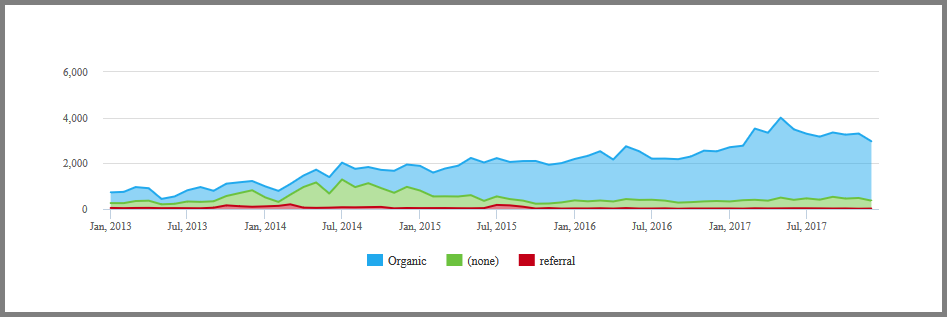How Blogs on Your Website Equal More Website Visits
 While my job responsibilities may extend far beyond what a BA in English might ascribe, my first and primary passion is writing content. And my favorite among that has to be writing blogs. Writing in general – and blogs in particular – is a type of content for your website (content in marketing terms means “stuff you can market with”). In all great marketing plans, content like this is king. And written content is king for search engines, as it is one of the largest things that affects search results.
While my job responsibilities may extend far beyond what a BA in English might ascribe, my first and primary passion is writing content. And my favorite among that has to be writing blogs. Writing in general – and blogs in particular – is a type of content for your website (content in marketing terms means “stuff you can market with”). In all great marketing plans, content like this is king. And written content is king for search engines, as it is one of the largest things that affects search results.
Search Engines and SEO
SEO – spelled out as Search Engine Optimization – is how visible your website is to search engines (which generally means we’re talking about Google, sorry Bing). The algorithms that search engines use to put websites and products in front of people aren’t shared for several reasons. One is avoiding exploitation: if you were using the internet back in the late 90’s and early 00’s, you might remember website pages loaded with piles of keywords and ads. A second is that they are pretty complicated, taking into account everything from where you are to what you’ve searched for in the past. Another is that with the rise of machine learning, it might be a case of so many changes and things going on behind the scenes, Google can’t give a concrete answer any more on the exact formula.
Understanding How Blogs Affect SEO
So, I mentioned keywords in the previous paragraph: a good blog is chocked full of keywords for your subject of choice. But (and pardon the pun) Google isn’t just searching for keywords, it’s looking at length, header content, and more. Check out this blog, 3 Tips to Take Your Business Blog to the Next Level, for more info on writing blogs – this blog is about explaining their impact. The short of it is that good content on your website improves search results, and blogs are one of the easiest and best ways of producing content for your website that people actually want to read.
An Example of How Blogs Improve Search Results
Below you’ll find a chart of Google Analytics data showing one of our long-time clients who we write blogs for (this chart, by the way, comes from a reporting software we use called Swydo). This chart covers the last 5 years we’ve written blogs for them, with an average of four blogs per month. In blue, you can see the traffic that comes from “organic” traffic, that is users that found them via Google Search.

Even at the start of this, they are at a pretty respectful 700 users per month, but at the end, they are up to 3000 users per month. This is in large part due to blogs, because blogs are cumulative: every blog you write will bring in new users, and your old blogs will bring in new users as well. And this isn’t even counting when people share or cite your blogs on their social media or own websites: check out our backlinks blog for more info on that.
Tips for Getting More Traffic from Blogs
Okay, so how can you take this information and example and bring more traffic to your website? The short answer is: write blogs. But here are some tips you’ll want to follow to get the most out of them:
- Write Often: You have to commit to writing blogs regularly. The above example is 4 blogs a month regularly for 5 years.
- Write Long: You need to provide a good amount of content, at least 300 words, with each blog. More is better, as more content = more for the search engine to like.
- Write Well: Kind of a given, but you need to be able to write. Make sure to check your work (or have some check for you) for typos and other errors. Try to catch them all.
- Be Helpful: Your blog shouldn’t be about how your day was, or just copy-pasting an article from another site. You need to answer the question that the person using the search engine is asking.
- Use Keywords: If you want, you can use a keyword planning tool. AdWords has one you can get from signing up for a free account. Otherwise, think about different ways someone might ask a question you can answer.
- Proper Formatting: Have a title and several headers. Have paragraphs and bullet points. Have links. Have a picture that you’ve actually filled out the alt-text for. These will all help your readers, which means it’s something Google will be looking for.
Blogs are a great way to improve your visibility on the internet; therefore get more users visiting your website and buying your products and services. But they are also a lot of work. Want help? It’s time to contact Vision Advertising. We’re a full-service marketing agency, specializing in comprehensive internet marketing – from websites to social media and everything in-between. Contact us today to start the discussion and find out if partnering with our digital marketing agency is right for you.
